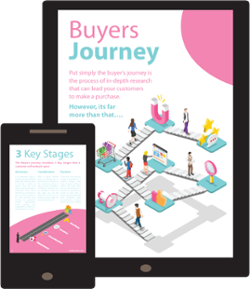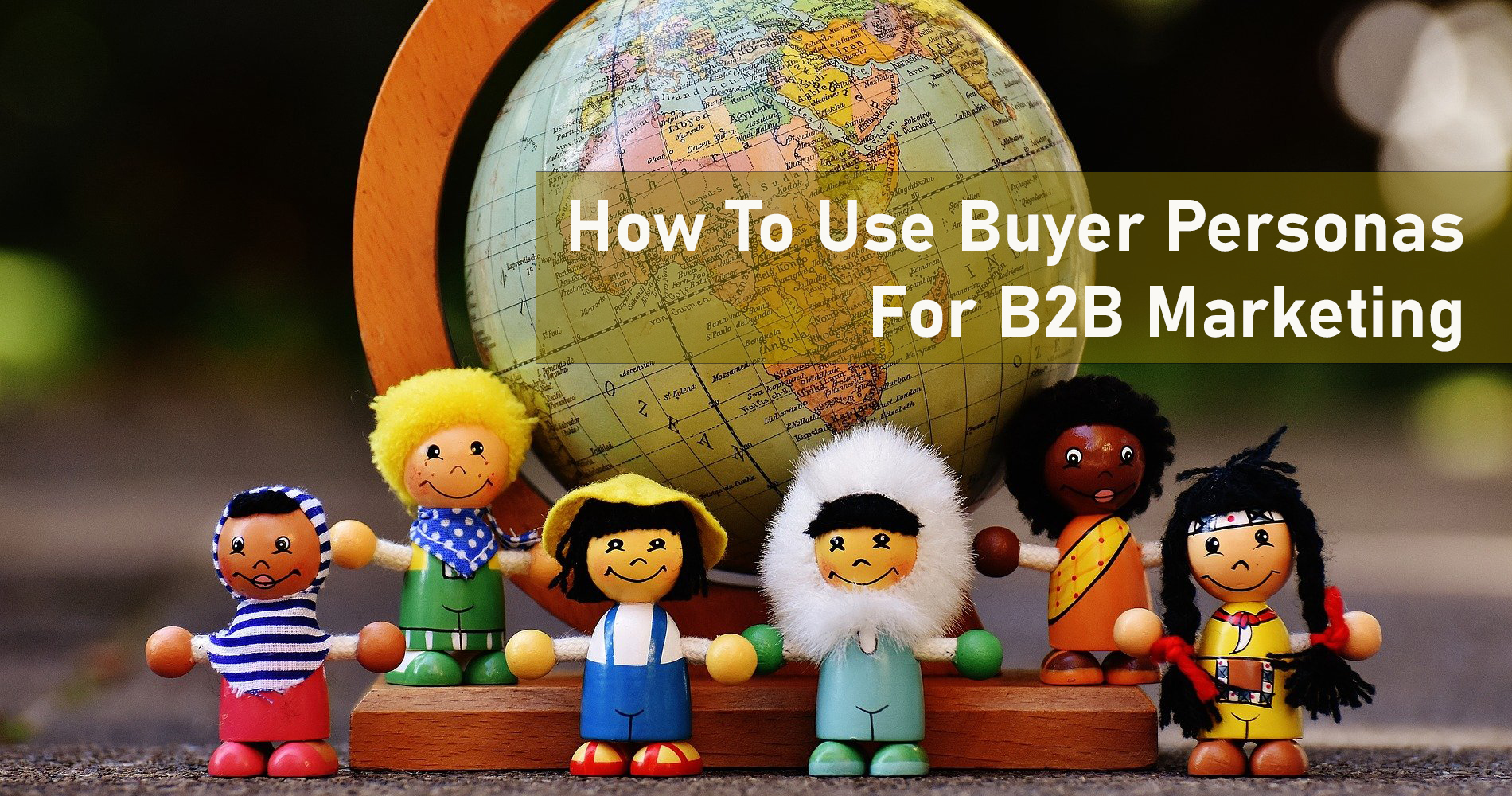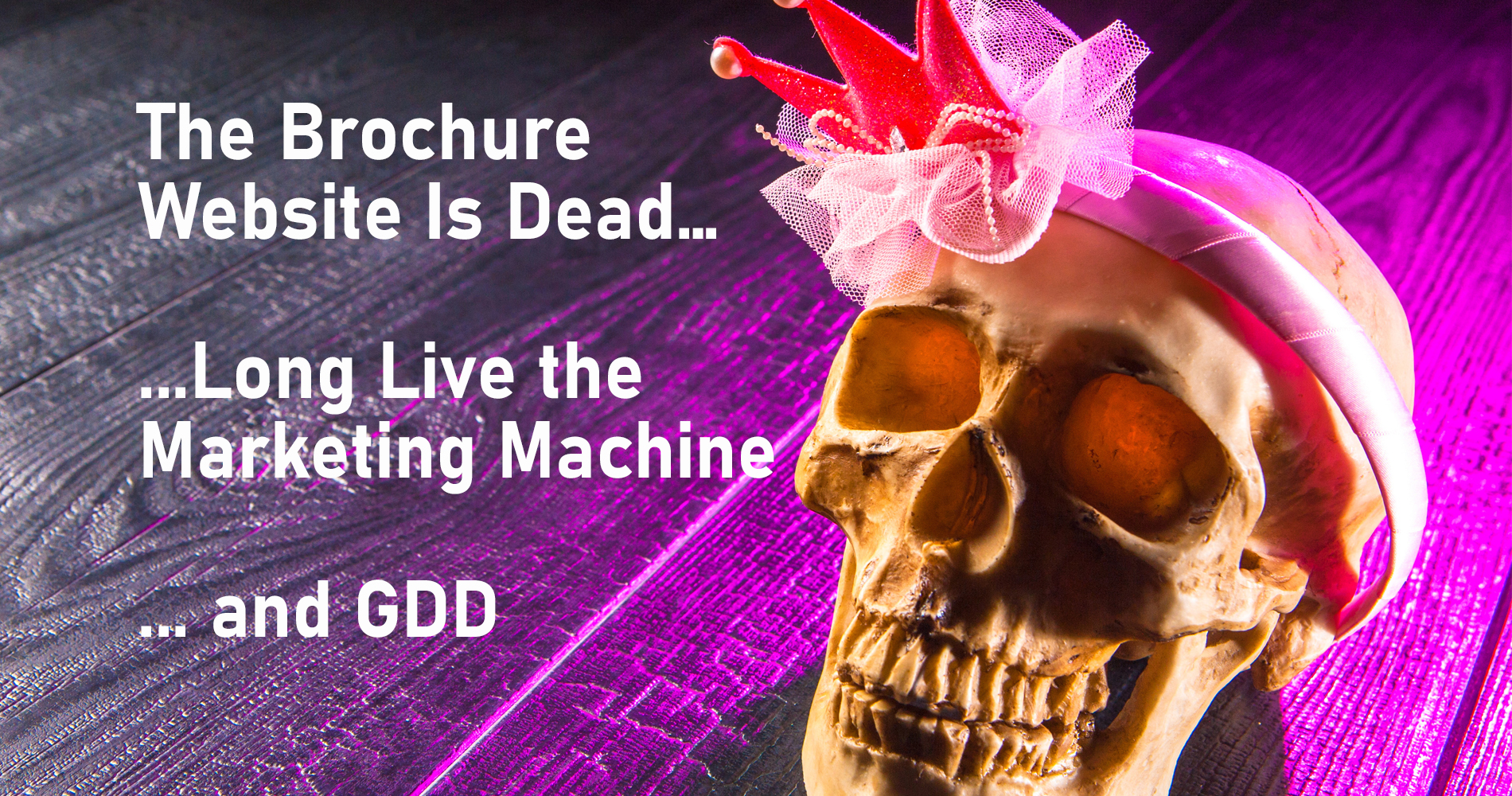Planning ahead is essential to the success of your business. It’s something we do with every project we begin because this is how we know we’re on the right track. Because who wants to start a project without knowing where we're going?
Those days of spray and pray’ are long gone. Luckily, there are plenty of options today, like AI, data mining, and buyer personas.
Defining B2B Buyer Personas - Why are They Important?
B2B buyer personas are based on your company's direct interactions with customers, and they capture browsing preferences and needs. A marketer from your company will create buyer personas tailored to particular market segments by analysing data collected from consumers and market research. A B2B buyer persona provides insight into the behaviors of potential customers, which can be incorporated into future recommendations.
Understanding who you sell or provide services to is crucial for developing marketing strategies. Personas are a way of determining the demographics of your target audience, such as their age, gender, and location. As a result, you'll set clear goals and can keep your attention on what matters most rather than wasting time trying to appeal to everyone.
B2B Marketing Personas: How to Create Them
Creating buyer personas helps marketers to create content that speaks directly to their target audience by finding out what information they are interested in learning about the product or service. This in turn builds customer trust and leads to:
The use of buyer personas allows marketers to create content that speaks directly to their target audience while building trust and reliability with their customers.
This allows them to:
- Use focus keywords to narrow your search
- Enhance your SEO strategies
- Write better copy
- Help prioritise marketing campaigns and activities
Having established the importance of buyer personas for B2B marketing, let's talk about how to develop them.
1. Identify prospects and customers
You create your ideal customer profile by using research and anecdotes, as well as your existing customer database. It is not just firmographic information that is used to design Ideal Customer Profiles (ICPs). In the ideal case, you should also collect firmographic and technological information. This will help you better understand your customers and prospects. Identifying patterns in your customers can help you improve your services.
2. Understand who you are trying to reach
ICPs, or ideal customer profiles, are pretty simple to develop if you know your target audience or B2B audience quite well. Nevertheless, many entrepreneurs fail to gather enough information on exactly who they are trying to reach. What follows? The first buyer persona that they create bears no knowledge of what makes the buyer tick, or how to influence him or her. When market targets are not identified, it is harder to appeal to - and capitalise on - consumer buying trends. You must first gather as much information about potential customers who have purchased similar products or services as yours before creating your ICP and buyer persona.
3. Ensure a healthy balance between sales and marketing
For a campaign to succeed, marketing and sales need to work together. It is no secret that salespeople recruit prospects and convert them into actual payees.
By getting feedback from multiple perspectives in sales, you can determine what features to include in your offering for different market segments. Insights and commentary from sales reps are invaluable when it comes to uncovering how consumers will be interacting with your product once it's available.
1. Follow up with current customers
Messages and language will affect each person differently. Asking for feedback from current customers can be very helpful in this regard. For instance, do they prefer casual conversation over formal language?
You can try out different approaches to see what resonates most with them once you've figured out what the majority likes and doesn't like. More personal messages have a better chance of resonating with people.
How to use Buyer Persona for B2B Marketing
1. Sort your contacts based on buyer personas.
List segmentation is a nifty tactic that will help you send out more targeted communication to your leads and customers. If you segment your list by buyer personas, then you can do all kinds of fun stuff!
The first step in segmenting your list is identifying relevant and interesting attributes about each record. Your campaigns will immediately be more relevant as well as the channels you choose to reach those people. How can you entertain those people? In addition to delivering more personalised messages offline with direct mail, segmentation allows you to assemble email addresses that can be used to send out more promotional materials online.
2. Engage influencers in your marketing
Keeping up with the latest marketing trends can be very challenging. A successful marketer must be able to evaluate opportunities quickly and leverage those that have the potential to impact the business positively.
Today, finding a small, new audience for a campaign is often more expensive than investing in an influencer that has previously been used by another business. A very popular element of modern marketing strategies, influencer marketing is very cost-effective and easy, and so it's gaining momentum as a booming field. This approach has the advantages of using the audience and platform of someone who has already established himself or herself.
Start by identifying influencers with similar interests to your Buyer Personas, then reach out to them to create a partnership to promote your products.
3. Optimise Your Marketing Campaigns
Different personas behave differently. Different people check their e-mail at different times. While some people do it the moment they wake up, others do it after work.
Email is most active between 10:00 am and 11:30 am, as well as between 2 pm and 5 pm.
By using tools like Google Analytics, you can identify the best times to run campaigns. You can make your marketing campaigns more effective by knowing when and how to use buyer personas.
4. Align your existing content with your personas.
You need to ensure your content resonates with your audience and adheres to your personas to attract the leads you want. Your content might not align with your personas, so it's important to update it or even delete it if it hasn't generated leads for you.
Analyse your content and determine the persona that each piece will be most suitable for. Ultimately, you have to create compelling content if you want to attract the right people.
5. Decide which channel to use
Each persona has a preferred channel. With the help of personas, marketers can pinpoint their target audiences' most frequent locations and consumption patterns?
You must know what theories, strategies, or practices are most effective for you. You need to know, for instance, what kind of videos your target market will watch if they are learning about buying new appliances on YouTube. What type of videos will they prefer? Will it be a patchwork of photos with captions underneath? Or perhaps educational graphics? The content opportunities on each platform may resonate more strongly with some people than others.
Additionally, buyer personas make it easier to align messaging across channels, resulting in greater brand recognition.
Using B2B marketing personas to your advantage
It is important to make sure that any time or efforts you devote to developing content won't go to waste by targeting specific groups of people most likely to buy your product or service. This is the type of person who has already demonstrated interest in similar products, making them the best candidates for your campaigns.
 Buyer personas for B2B Marketing work on the same principles, since they are aimed at reaching a specific demographic as quickly and efficiently as possible. The use of this simple idea will provide you with the assurance that all your advertising efforts won't be wasted on people who aren't willing to purchase your products. Make sure to conduct extensive research on your prospective audience before investing in your b2b marketing strategy.
Buyer personas for B2B Marketing work on the same principles, since they are aimed at reaching a specific demographic as quickly and efficiently as possible. The use of this simple idea will provide you with the assurance that all your advertising efforts won't be wasted on people who aren't willing to purchase your products. Make sure to conduct extensive research on your prospective audience before investing in your b2b marketing strategy.






